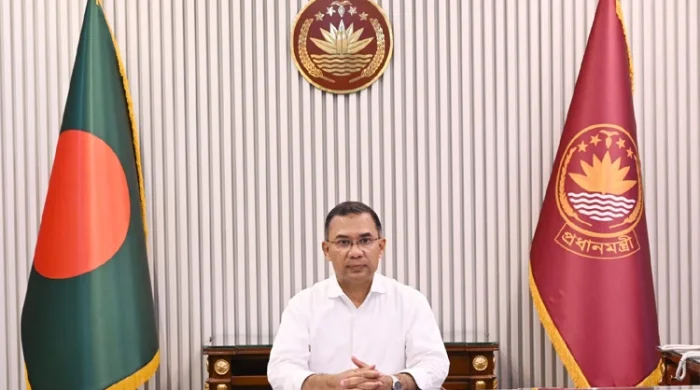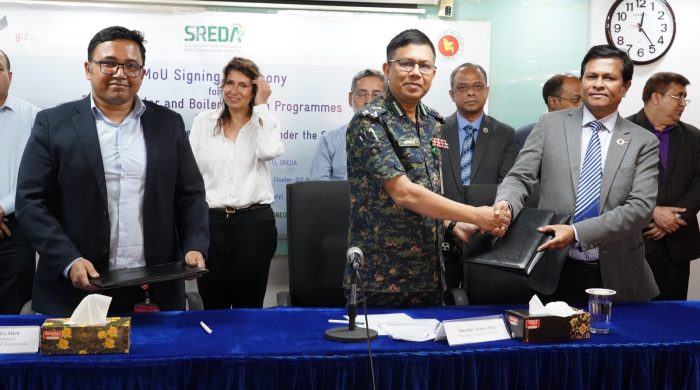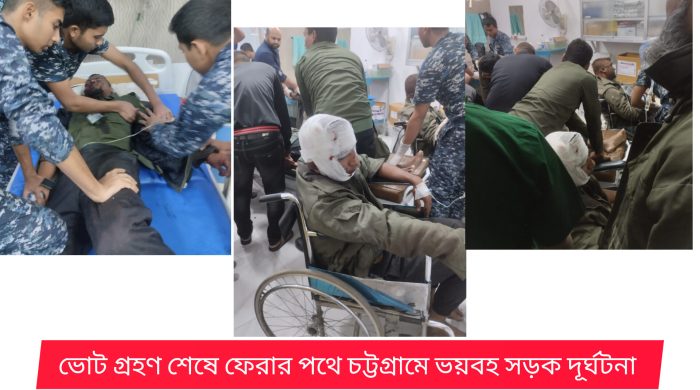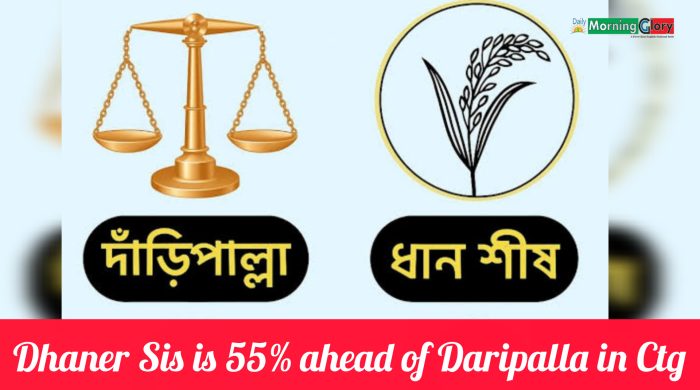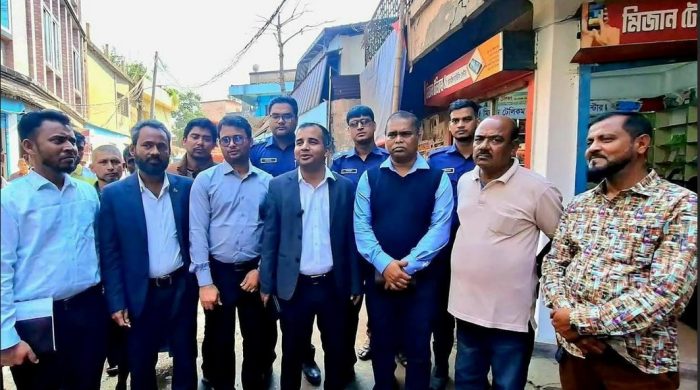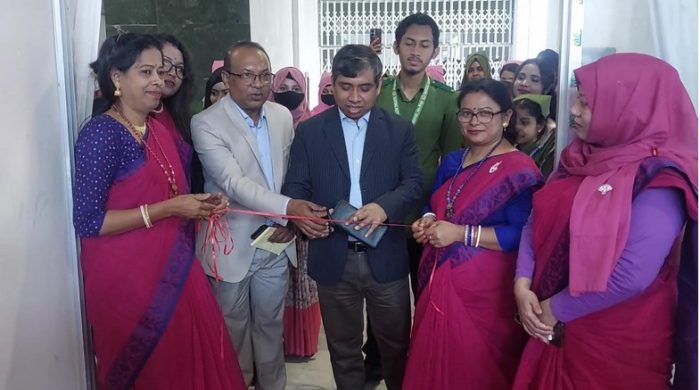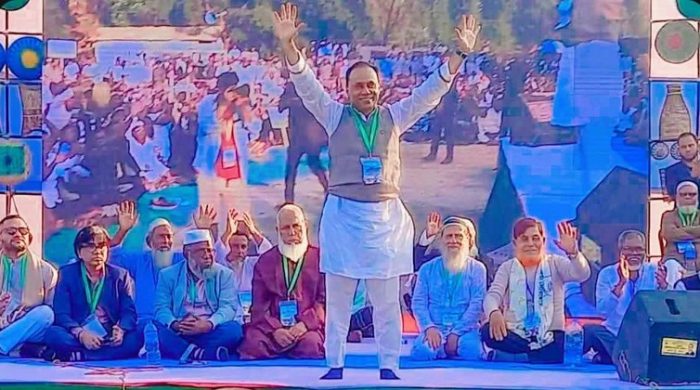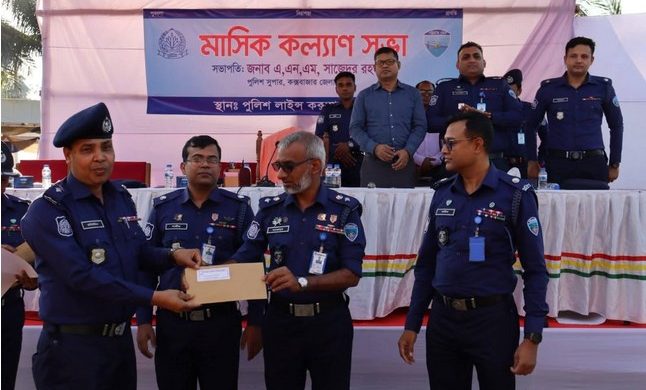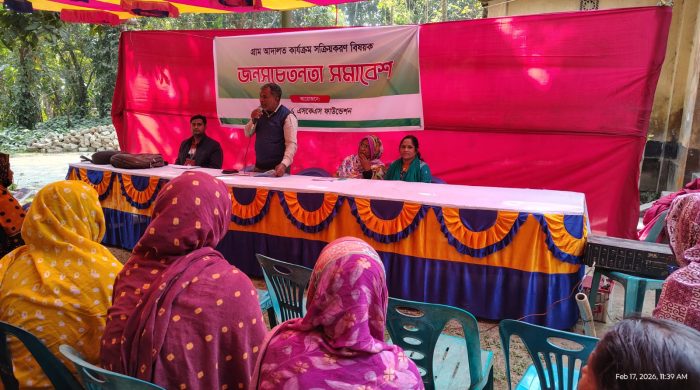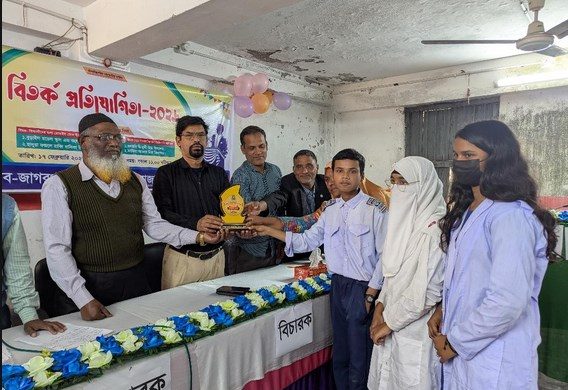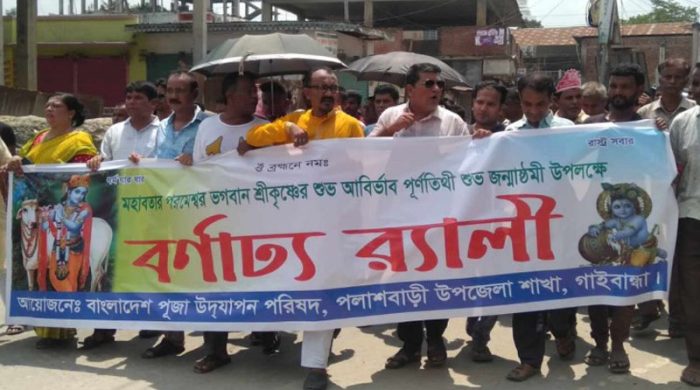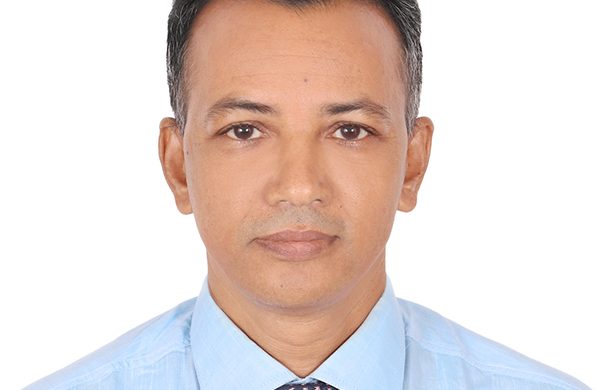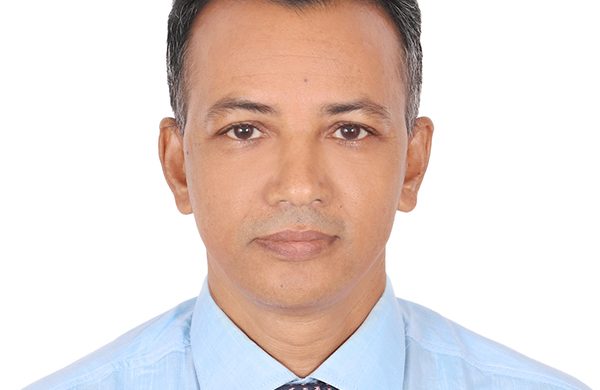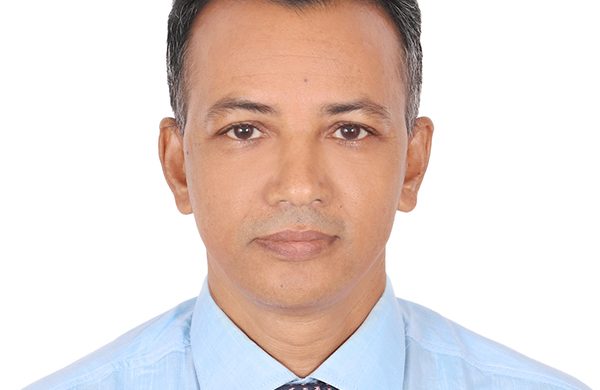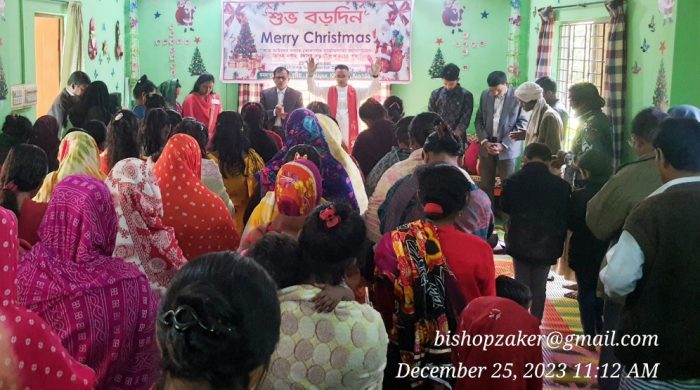“The budget did not discuss the problems of the banking sector”
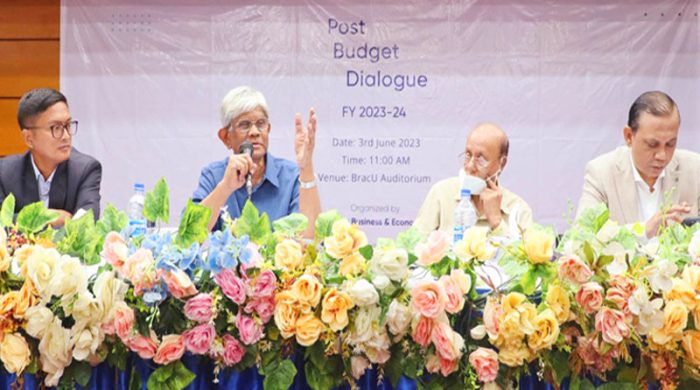
Photo-collected.
Online Reporter/
The problems of the banking sector were not discussed much in the proposed budget. In particular, nothing has been said about the sector’s biggest problem, recovery of defaulted loans and repatriation of money smuggled abroad. Besides, there is talk of reducing inflation and increasing investment, but there is no clear direction on how to do it. However, there are many positive aspects in this budget, but implementation of the budget will be a major challenge.
The top economists of the country said these things in a discussion meeting on the proposed budget for the fiscal year 2023-24.
BRAC Business and Economics Forum of BRAC University organized the discussion on Saturday. BRAC Business School professor and former caretaker government economist Dr. participated in it. Mirza Azizul Islam, Professor of BRAC Business School and former Governor of Bangladesh Bank. Salehuddin Ahmed, CEO Mominul Islam, IPDC Finance and Snehasish Barua, FCA, Partner, Snehasish Mahmood & Co.
AB Mirza Azizul Islam said that with the passage of time, the budget in all countries increases. It is also happening in Bangladesh. It is very less in proportion to GDP. So it cannot be called a big budget. Overall, I think the targets set in the budget are acceptable. But there are problems with its implementation. Inflation has been estimated at 6 percent in the budget. But there is no indication of narrowing such a wide gap from 9 percent inflation. It is said to increase the repo rate of Bangladesh Bank to control inflation. It played no effective role.
He also said that it is proposed to increase the allocation in the social security sector. Applaud it. In the current situation, the government does not accept the proportional rate of population below the poverty line, but it is true that the number of poor people has increased. Therefore, there is a need to increase the allocation in the social security sector. But the question remains whether the allocation of this sector is being used properly. Because those who are supposed to be included here, are not. And those who are not supposed to come, they come. I did not get any message in the budget speech to solve these problems. So there is apprehension about getting its benefits.
AB Mirza Azizul said that the reserve in the budget is said to have decreased. It is also said that imports will increase, remittances and exports will decrease. But there is no specific statement on how the reserve will be increased. Therefore, to increase the reserve, skilled manpower must be exported abroad. Besides, the market of new products should be caught in export.
He also said that in the proposed budget, it is said to increase private sector investment by 6 percent. It is not understandable how it will increase in one year. Besides, the target of revenue collection will not be achieved. ADP targets are also not achievable.
AB Mirzza Azizul said that the current problem in the banking sector has not been mentioned in the budget. In particular, no effective steps have been taken to recover defaulted loans. Which is currently the biggest problem in the banking sector. On the other hand, the government is taking large loans from the banking sector to meet the deficit budget financing. If the government borrows more from the banking sector, it will affect the growth of the private sector. Investment will be less. As a result, employment will not be created. Growth in the private sector has already slowed. Capital market is not yet playing a role in investment financing. In that case, bank loans are needed for private sector investment. Besides, if more loans are taken from the banking sector, the money supply increases. If production does not increase with credit, inflation will increase.
The proposed budget has mentioned many visions to build a smart Bangladesh. There are various achievements and expectations. But there is no specific direction in any matter, said the former governor of Bangladesh Bank. Salehuddin Ahmed.
He said that there will not be much discussion in the parliament about the budget that we are discussing. Because the budget has already been passed. Change may actually come in two places. A budget is a precious thing. So talking about it. Common people are no longer interested in the budget. Because there is nothing here for the common man.
He said, “The limit of personal tax-free income that has been proposed at 3.5 lakh rupees is correct. But two thousand rupees, which is the minimum tax, why is it? Two thousand rupees should be paid only if the return is given. I find it contradictory.
He also said that the budget will not implement everything in one year. But the budget should have been given for the priority sectors and the current challenges. Emphasis on export and remittance sector. Apart from this, there was a need to reduce poverty to zero, make agriculture and industry friendly budget. But I did not see any specific plan in the budget. Only the back story is told.
He said that the price inflation has been estimated at 6 percent. Currently there is 9 percent, it is not possible to bring it to 6 percent. Bangladesh Bank is giving loans to the government by printing money. Inflation is increasing. The proposed budget has also fixed the target of borrowing huge amount from the banking sector. It is not possible to keep inflation at 6 percent. The banking sector is already suffering from liquidity crisis. If the government increases the credit from this sector, it will affect the private sector. Private sector growth will slow down. It will not create employment.
Criticizing Bangladesh Bank, the former governor said that defaulted loans are not being recovered, corruption is happening and money is going out. They are busy with the circular that MDs cannot go abroad without working on these.
IPDC Finance Chief Executive Officer Mominul Islam feels that the government has to prepare this year’s budget by balancing many challenges. He said, “Of course we want infrastructure development of the country including roads, along with an equality and justice-based society and a business-friendly environment with good governance, improvement of law and order situation in the country, improvement of the judicial system for economic and social development. Besides, since the private sector always collects revenue, the government in various ways. It should be ensured that no one is harassed in doing business and businesses get support from the government.
In the event, Snehashish Barua discussed the importance of digitization in revenue collection, strategies for effective revenue collection and various aspects of Income Tax Act. The program was moderated by BRAC Business School Senior Lecturer Tanya Akhtar.




